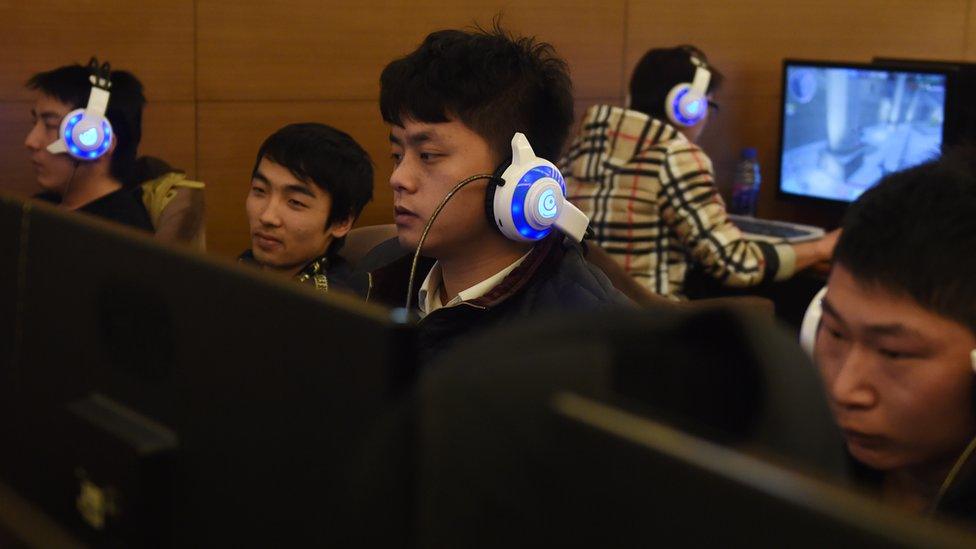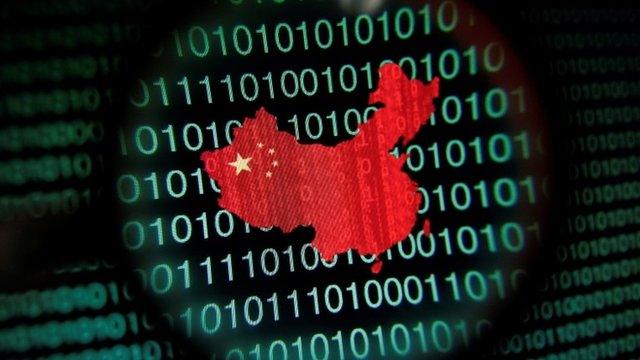China announces tighter regulations for online news
- Published

China has the world's largest online population
The Chinese government has issued new regulations tightening its control over online news content.
Companies that publish, share or edit news will need a government licence, and senior editors must be approved by the authorities.
Other staff will be required to undergo government training and assessment, and receive official accreditation.
The legislation will bring online news providers into line with traditional news media operating in the country.
From 1 June, when the rules come into force, they will be expected to follow "information security protocols", including "emergency response" measures such as increased vetting following disasters, according to the state news agency Xinhua.
In a statement published online, the Cyberspace Administration of China (CAC) said the new rules would "strengthen management of information" and "promote the healthy and orderly development of internet news, in accordance to law".
Public interest
The list of providers and platforms covered includes "websites, applications, forums, blogs, microblogs, public accounts, instant messaging tools and internet broadcasts".
Organisations that do not have a licence will not be allowed to post news or commentary about the government, economy, military, foreign affairs, or "other areas of public interest".
Editorial and business operations must be kept separate.
Only publicly funded organisations will be able to carry out their own reporting.

Analysis: Kerry Allen, BBC Monitoring
This most recent regulation from the Chinese state will make it more difficult for business media in the mainland to stay competitive.
Many outlets are independent and operate online.
It has already been problematic for staff from such organisations to obtain press cards to events - but financial websites such as Caijing and Caixin Online have traditionally been able to secure strong followings online because of their credible investigative journalism, and their articles are often shared through popular news portals.
But in recent months, the Cyberspace Administration of China (CAC) has made increased efforts to tighten online media regulation - particularly as live streaming and video blogging becomes a popular means of telling news.
In July 2016, it fined and disciplined a number of news portals for sharing independent news stories.
The following month, the CAC introduced rules for users of live streaming platforms to be monitored full-time, and in December of the same year, the CAC announced that all live streaming users needed a permit.

Chinese outlets will not be allowed to enter joint ventures with foreign partners, or accept foreign funding, until they have a passed a security assessment carried out by the government's State Council Information Office.
Companies that fail to comply will have their licences withdrawn and face fines of up to 30,000 yuan ($4,350: £3,370).
Google, Twitter, Facebook, YouTube and many foreign news websites are banned in China.
- Published2 May 2017

- Published23 January 2017

- Published16 January 2017

- Published25 July 2016
